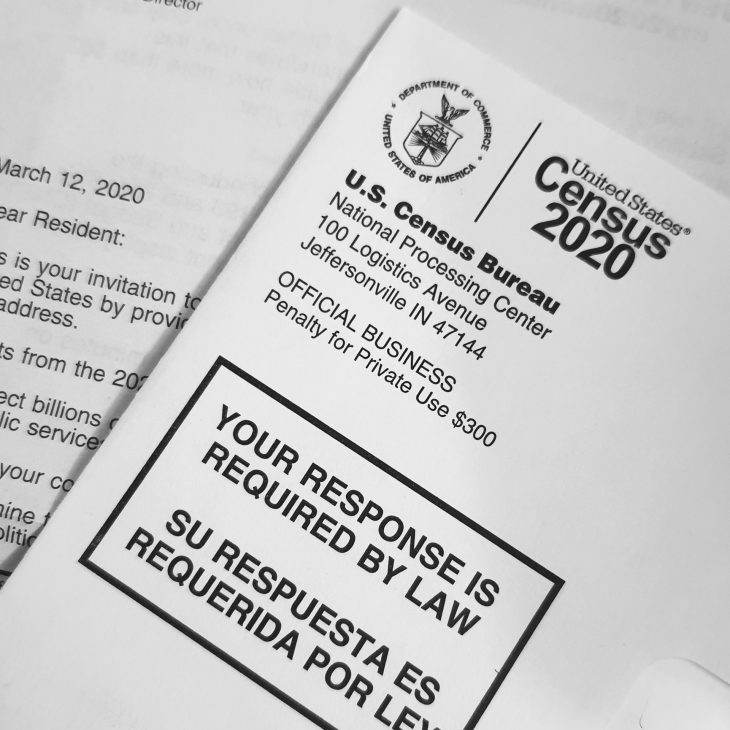Faith Leaders and the 2020 Census
August 11, 2020

A few weeks before the world was forced indoors, faith leaders from across the country gathered together on the seventh floor of the Washington National Cathedral. They sat, less than six feet apart, to discuss how they would get their communities involved in a grassroots campaign that would shape the lives of their communities for the next ten years. They came to discuss the 2020 Census.
No one would know then that their lives, and the lives of those they serve, would be upended by a global pandemic. Despite the pandemic, the charge to count everyone living in the United States remains. Since 1780, whether the country faced war, a severe economic depression, social unrest, or a global pandemic, the count continues.
Our very foundation for a representative democracy rests upon a complete count of the population. Established by the U.S. Constitution, the census count informs the apportionment of the U.S. House of Representatives. This count is then used to inform state redistricting efforts. Therefore, the importance of the census is pretty profound – when you participate in the census, you make your voice count.
The very tools and Federal programs the country is relying upon during this pandemic is informed by Census data. Whether we are tracking the next “hot spot” on a map or which urban or rural community is experiencing a surge in Covid-19 cases, the data collected through the census makes this possible. Resources that are critically important to vulnerable communities right now– like Supplemental Nutrition Assistance Program (SNAP) benefits, Medicaid, Unemployment Insurance, and many other Federal programs – are all shaped by the data collected through the census ten years ago.
Given the many benefits of census participation, it is vital that we achieve a full and accurate count of everyone living in the country. Often where there are more people living in an area, there are more needs. Therefore, during this very fragile time in our nation’s history, it is imperative that faith leaders mobilize to ensure all communities are counted. We need faith leaders to help their communities get the resources they need. That is why the Sisterhood of Salaam Shalom (SOSS), a grassroots interfaith organization of Jewish and Muslim women, with chapters across the country, is getting involved in this effort.
Faith leaders are trusted voices. They are in regular service to the most vulnerable in our communities, even amidst a pandemic. They have the courage to go where others don’t. They understand how to connect and communicate with their congregations. Faith leaders can directly address their community’s fears about participating in the census and assure them that the census is safe to respond to. They can tell their congregants that questions about citizenship status will not be on the 2020 Census and that all communities are counted. They can explain that data collected through the census is kept confidential and that their personal information will not be shared with the FBI, ICE, CIA, any court of law or with local law enforcement, other Federal agencies, or even their landlords.
Young and emerging faith leaders – we also need your help. We know you are looking for ways to serve, even from six feet away. At this moment, young people may find themselves trying to understand the relevance and importance of participating in the 2020 Census. You can play a critical role in reminding them over social media that information collected through the census is also used to help enforce anti-discrimination laws, like the Voting Rights Act and the Civil Rights Act of 1964. These laws ensure we have equal employment opportunities and protections in place for all citizens to vote. By making sure everyone is counted, you honor the courageous legacy of John Lewis, whose tireless efforts helped establish these very civil liberties. You can also remind them that Census data ensure all communities have better access to educational resources like the Federal Pell Grant.
Love your neighbor, make sure they’re counted. The role you play can make a significant difference in whether your community’s voice is heard and their needs are met – not just today, but for the next ten years.
Shagufta Ahmed is a board member of the Sisterhood of Salaam Shalom (SOSS) and a federal employee. The views expressed in this article are those of the author herself and do not necessarily represent the views of the United States government.
Share
Related Articles
American Civic Life
American Civic Life
Higher Education
What Does Interfaith Engagement Mean from an Evangelical Perspective?



